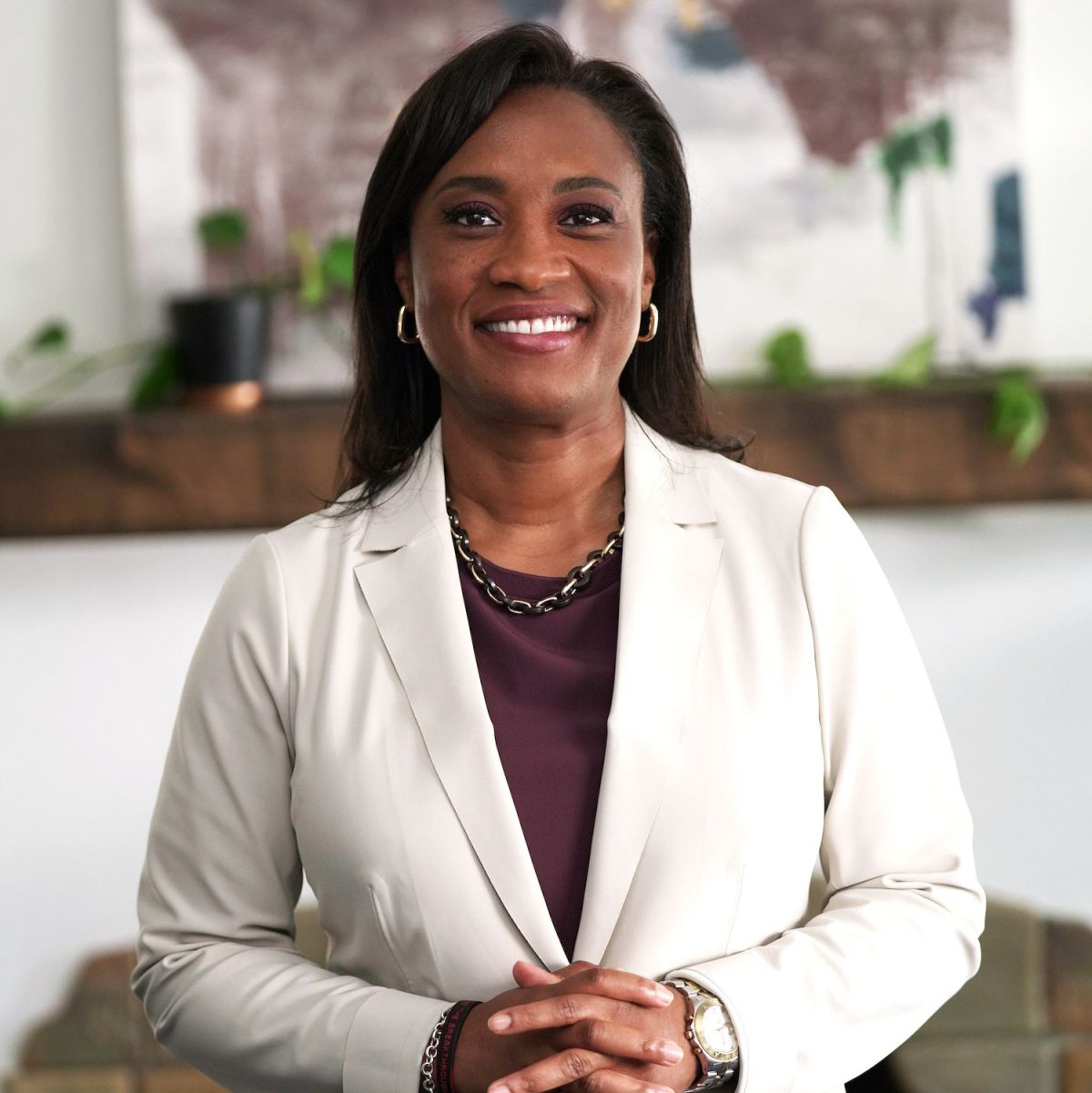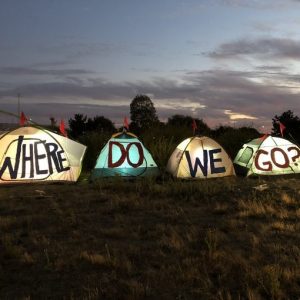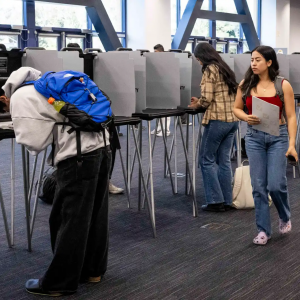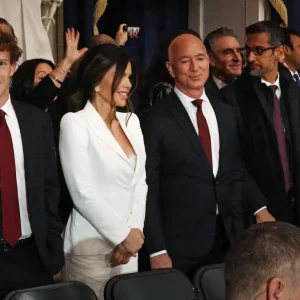Since her ascension to the role of President of the political action committee EMILY’s List, Laphonza Butler has broken down barriers and built empires through her work of elevating pro-choice female political candidates. EMILY’s List is known today as one of the largest national resources for women in politics, now an acclaimed American PAC devoted to electing Democratic female candidates in favor of abortion rights to national office. Since its founding in 1985, this female-focused PAC has raised $600 million for pro-choice candidates, gained over 3 million members, and helped elect more than 1,300 women to state and local political offices.
The organization is based upon the phrase “Early Money Is Like Yeast,” a testament they have undoubtedly lived up to with its recent surplus of success stories from the 2020 election. As an organization, EMILY’s List strives to show the world that women are worth investing in, and Laphonza Butler certainly lives up to that standard. Her work incorporates a collaborative, communal understanding of what it means to work in politics and to help elect women across the country.
This Women’s History Month, I was lucky enough to sit down with the “Queen-Maker” herself, and ask her important questions surrounding her background, her work as the President of EMILY’s List, and her commitment to elevating young women in national politics. As the 2022 midterm elections and threats of a Roe v. Wade repeal approach, Butler sat down with us to discuss how college students can overcome the polarization of national government, personalize our relationship with politics, and persist in the pursuit of meaningful political representation.
Section 1: Personalizing Politics
What made you want to get involved in politics?
My mom has always been an influence in my life, especially her presence and her sacrifices as I grew up. We didn’t talk about politics or elections, but we did talk about how we could be of service to others. I have always thought of my work as an extension of my mother’s journey.
What was your first “political” job?
My political career started as an extension of union organizing, specifically with SEIU. I started my work there right out of college. Ultimately, I was the president of the largest union chapter in California, SEIU Local 2015. I worked to raise the minimum wage and increase benefits for domestic health care workers.
What made you decide to join EMILY’s List?
Like with every major decision that I make, I think about my daughter, Nylah. EMILY’s List works to ensure that future by electing Democratic pro-choice women in races up and down the ballot and across the country. Women like Vice President Kamala Harris, future senators Cheri Beasley and Rep. Val Demings, and so many more, will help ensure that Nylah and little girls like her know what the government works for and looks like them.
EMILY’s List has been called “the largest resource for women in politics.” What do you believe makes EMILY’s List such a successful powerhouse for Democratic Fundraising?
I think that our mission speaks to a lot of people. When our founder Ellen Malcolm gathered with 25 friends and their rolodexes in her basement in 1985, she did so with a vision of what the future could look like if we elected more women to office. Now, more than 30 years after those women started collecting and bundling those checks on behalf of Democratic pro-choice women, the work continues with the support of many people who believe that diversity of leadership at every level of government should reflect the community it serves.
As the first mom to lead this organization, how has being a mother shaped your priorities and your vision for the future of politics?
I approach my role in politics with the lens of the mother of a daughter who should have all of the same opportunities as anyone in this country. I want to make sure that a Democratic pro-choice woman who wants to run for office, regardless of background, can see herself represented, and can truly make EMILY’s List her political home.
Have you ever felt undermined as a woman in politics? If so, how did you get past that? What advice would you have for young women experiencing something similar?
Sure, I have. I don’t think a woman, and especially a Black woman can move through this world and not experience racism, sexism or both. And these isms create obstacles and barriers to progress that feel hard to overcome, but I’ve done hard things all my life, and I’m built for this fight. That unrelenting spirit is what I’ve carried with me throughout my career.
For other women, stand up for what you believe in and ask for what you want. If you don’t, you may be disappointed with yourself. Know your worth and demand it to be met.
What is the most important lesson you’ve learned as a woman in politics?
I’ve learned that part of the journey in our nation will be normalizing that which we haven’t seen, especially the election of women. We have a habit of calling it something else – unelectability, unlikeability, etc. But it’s just different. And in the case of Democratic pro-choice women running and winning in politics, different is good. It’s up to us to change the narrative.
Section 2: Midterm Mania
As elections loom in 2022, and restrictive voting laws shadow the midterms, how do you plan to mobilize EMILY’s List to elect Democratic Pro-Choice women?
EMILY’s List has a role to play in the fight for voting rights by ensuring that we elect women who will protect our rights and make voting more available, not more restricted. We’ve seen that on display with our candidates who have stepped up, spoken out and have even been arrested for the cause, such as Georgia State Representative Park Cannon, one of our Gabrielle Giffords Rising Star nominees.
How do you plan to combat the rising foe of disinformation and “fake news” in our country? How would you recommend students navigate such a rising wave of polarizing media?
Our candidates believe in truth and democracy. The best way to combat disinformation is with the facts. As a participant in the political process in the US, it’s important for students to trust the experts, like scientists, doctors and journalists, but also to be students of the world. Diversity in your news sources allows you to be exposed to different voices, and look at information with a critical eye.
Recently, “the Right” has expressed a deliberate intent to overturn Roe V. Wade. How are you hoping to combat these threats at EMILY’s List, and what can students do to help?
Our role in this space is to help elect Democratic pro-choice women up and down the ballot to fight for reproductive health and freedom like the House did by passing the Women’s Health Protection Act (WHPA) last fall. We do that by recruiting, helping the candidates who decide to run, raising money for those women and more.
The team of EMILY’s List will no doubt be essential to holding the House and Senate Democratic majorities, and electing women who will promote female bodily autonomy and liberation. As the threats of Roe v. Wade’s repeal loom, it has become more important than ever to elevate pro-choice women candidates that can help to champion issues of abortion rights. In 2021 alone, more than 600 anti-choice bills were advanced in 48 states, demonstrating the need for strong female leadership to offset these attacks and codify female autonomy into law. Conversations of codifying Roe into law all rely on the success of female pro-choice candidates, a point which undoubtedly rests on the shoulders of Democratic PAC leaders like Laphonza Butler.
Section 3: Women of Color
Laphonza Butler is the first woman of color to hold the role of President, demonstrating a common criticism of EMILY’s List, that it lacks organizational diversity, and does not do enough to uplift women of color. Critics have expressed a concern that the campaign allocations and focuses of EMILY’s List fail to reflect the higher hurdles minorities tend to face when raising money and running for political office. In such a way, Laphonza Butler’s historic selection as the first woman of color to lead the PAC demonstrates a newfound commitment of EMILY’s List to embrace women that will represent the “full diversity of America.” Butler’s accession to the role of President demonstrates a monumental power shift in the organization and its renewed commitment to women of color candidates. Butler states how “it is long past due for people in power—heads of organizations, political leaders, CEOs, etc — to represent the diverse communities that make up our society.”
As the first woman of color to lead this organization, what has assuming this role meant to you? What has your experience been like as a woman of color in politics?
I feel pride and responsibility to be the first woman of color at the helm of EMILY’s List. The organization has done so much great work, and I know that all of my previous experiences have prepared me to take on this task. I also know that a lot of our endorsed candidates and our soon-to-be endorsed candidates see parts of themselves in my story.
Candidates who are women of color face an obscene level of attacks rooted in racism and sexism. I want my work with EMILY’s List to make it easier for Black women to run for office by working to call out and rid the system of barriers that women of color face in electoral politics.
In the future of your role as President, how do you plan to make EMILY’s List especially accessible to women of color across the country?
My goal is to make sure that as we grow and as more women run, that those women and the people who support them through EMILY’s List represent the full diversity of America. My hope is that EMILY’s List can be a political home for any Democratic pro-choice woman who wants to represent her community, or support a woman who will.
What is EMILY’s List working on right now to make their recruitments more inclusive?
Diversifying our candidate pool begins at the state and local level. We work on the ground in regions with our run to win bootcamp to prepare women across the country to run for office. We also have a fellowship program that we use to recruit community activists, especially those with marginalized identities.
Section 4: Vision for the Future
What words of wisdom would you provide to someone feeling fatigued or burnt out by the polarizing nature of politics today?
It is okay to be tired, but we can’t stop. The women I have worked with throughout my career have fought hard because of the urgency of their needs. That being said, rest is revolution. We are in the fight together, so fill your cup with exercise or hobbies that keep you in the fight.
In a world full of political fragmentation, how do you reccomend women continue to support and uplift each other, despite their political differences?
By doing just that, supporting and uplifting each other. The goal of EMILY’s List has always been to elect more Democratic pro-choice women. There are many women candidates running now with different viewpoints on how to make this country a better place, but that is a good problem to have.
What advice can you offer to young women looking to become involved in politics? How would you recommend they get involved?
Volunteer. You can begin to make a difference by getting involved even at the local level. Your city council, mayor, state legislature are the leaders that are making decisions that directly affect your life. Local politics also have ripple effects nationally. The fight for reproductive rights in Texas and Mississippi are perfect examples of the importance of taking an active role in local politics.
Visit https://www.emilyslist.org/ to learn more about their featured candidates, and how you can get involved prior to the 2022 Midterms.
Featured Image Source: EMILY’s List






Comments are closed.